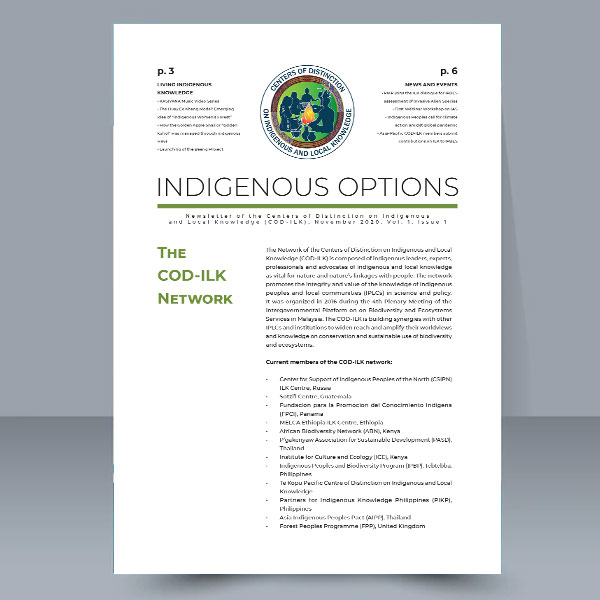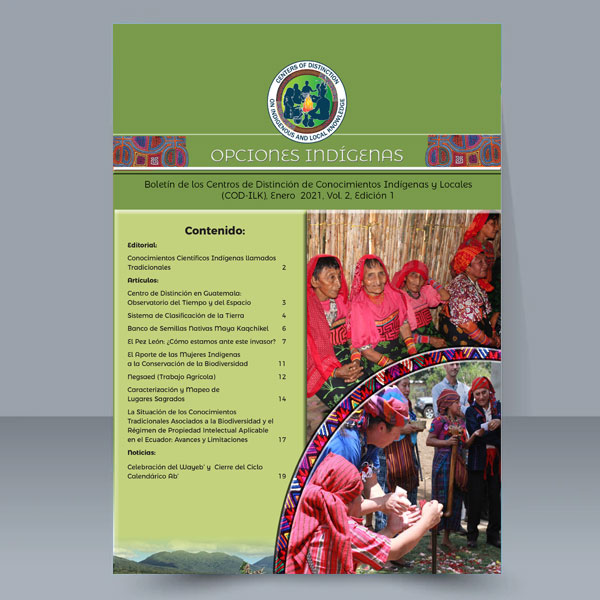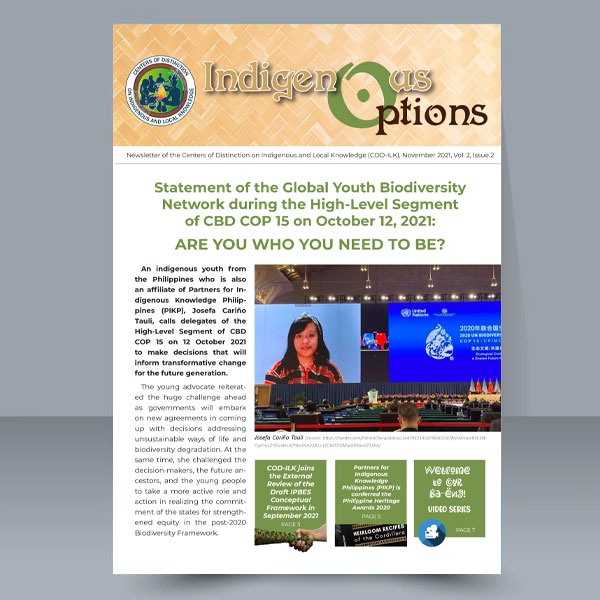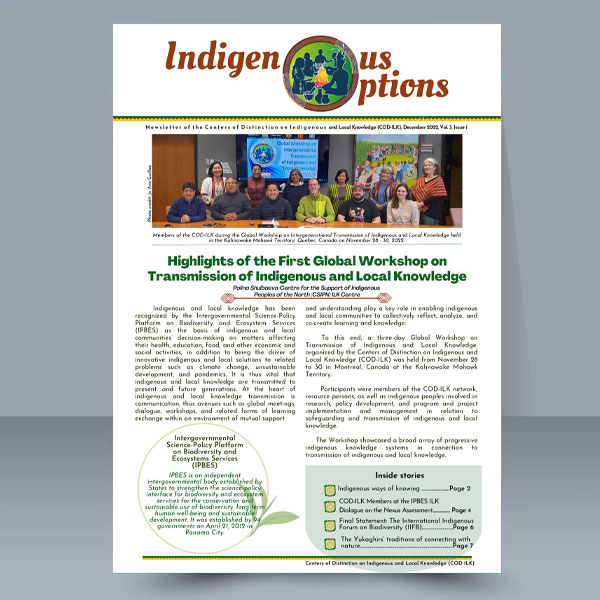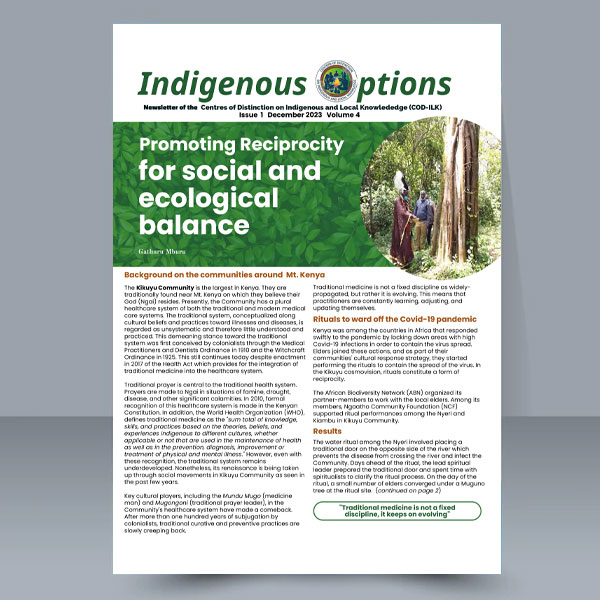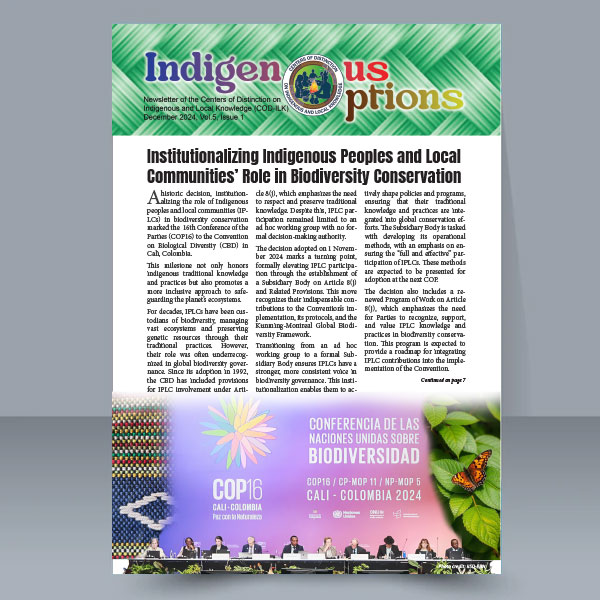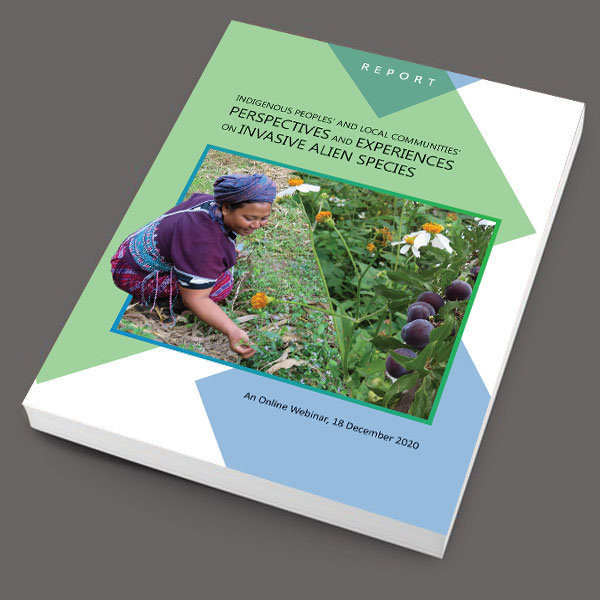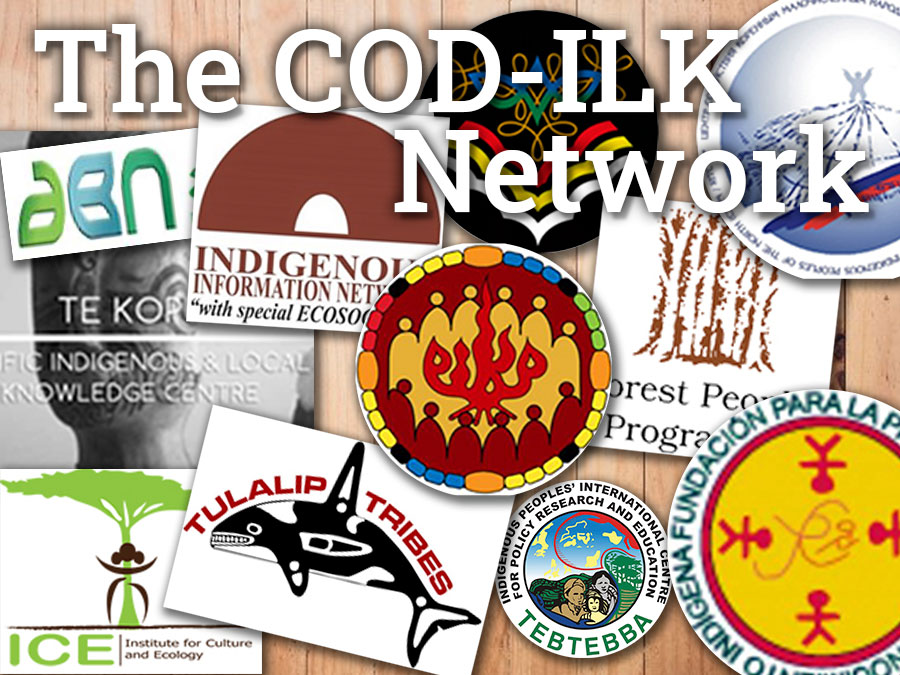Resources
Indigenous Options
Reports
Indigenous Peoples and Local Communities Perspectives and Experiences on Invasive Alien Species
This report covers the webinar on Indigenous Peoples’ and Local Communities’ (IPLC) Perspectives and Experiences on Invasive Alien Species (IAS) Webinar conducted on December 18, 2020. It serves as a written record of discussions, experiences, insights, challenges and recommendations shared during the webinar. It consolidates views shared in the webinar and seeks to reflect perspectives of the participants accordingly.
The Intergovernmental Science-Policy Platform on Biodiversity and Ecosystem Services (IPBES) is doing an assessment on IAS and has conducted activities to involve Indigenous Peoples and local communities (IPLCs) in the processes. The thematic assessment of IAS is an opportunity to document experiences of IPLCs to complement and reinforce science and policy development and reforms informed by ground data. Indigenous Peoples have concepts of IAS that differ in many ways from dominant concepts in non-indigenous science. This begins with the concept of “species.” For many Indigenous Peoples, the natural world is populated with a multitude of living entities, all standing in equal status to humans.
Indigenous Peoples have a range of reactions to the arrival of new species in their territories. Their spiritual beliefs and values affect their initial perceptions and responses that are often one of accommodation. But they are also aware of the harms that newly arrived species (NAS) can cause to their environment, their subsistence activities and livelihoods, the transmission of traditional knowledge, and. the economic and social costs. In some cases, Indigenous Peoples and local communities find uses for these new arrivals, while in other cases, expend considerable effort to control, and even eradicate them. Cultural values among IPLCs play a role in the management of new plants and animals or NAS.
Books
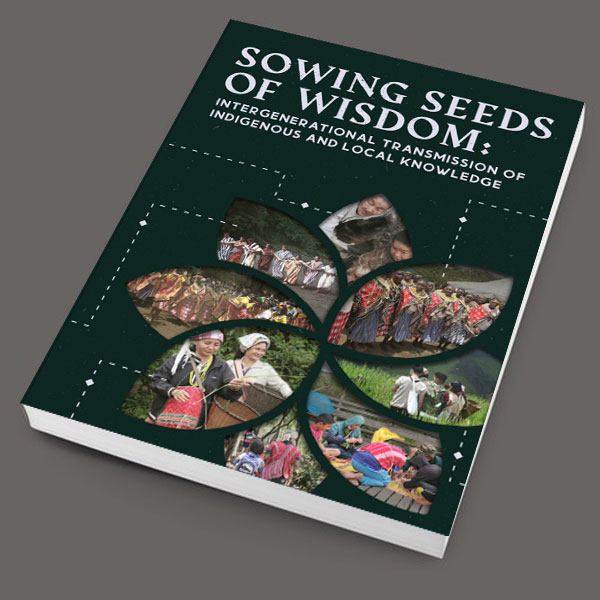
Sowing Seeds of Wisdom: Intergenerational Transmission of Indigenous and Local Knowledge
The Centers of Distinction on Indigenous and Local Knowledge (COD-ILK) came together in 2016 as a global network for the purpose of renewing and promoting traditional knowledge, wisdom, and practices as central solutions to contemporary social and economic crises.
We are diverse centers committed to nourishing traditional cultures, knowledge and values in different regions of the world. Each center has its own distinct activities and strengths and by coming together, we could support each other towards strengthening indigenous and local knowledge holders and experts in their place-based and context-specific work.
This publication brings together a collection of articles authored by knowledge bearers and experts from Indigenous Peoples and local community organizations.
Other Resources
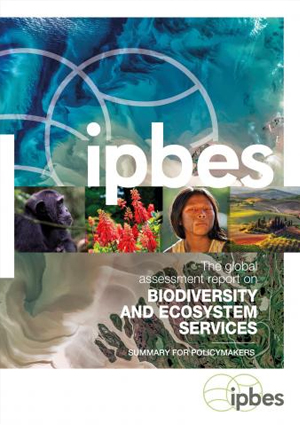
The global assessment report on Biodiversity and Ecosystem Services: Summary for Policymakers
IPBES is to perform regular and timely assessments of knowledge on biodiversity and ecosystem services and their interlinkages at the global level. Also addressing an invitation by the Conference of the Parties of the Convention on Biological Diversity (CBD) to prepare a global assessment of biodiversity and ecosystem services building, inter alia, on its own and other relevant regional, subregional and thematic assessments, as well as on national reports.
The overall scope of the assessment is to assess the status and trends with regard to biodiversity and ecosystem services, the impact of biodiversity and ecosystem services on human well-being and the effectiveness of responses, including the Strategic Plan and its Aichi Biodiversity Targets. It is anticipated that this deliverable will contribute to the process for the evaluation and renewal of the Strategic Plan for Biodiversity and its Aichi Biodiversity Targets.
The IPBES Global Assessment on Biodiversity and Ecosystem Services is composed of 1) a Summary for Policymakers (SPM), approved by the IPBES Plenary at its 7th session in May 2019 in Paris, France (IPBES-7); and 2) a set of six Chapters, accepted by the IPBES Plenary. Please see below to access these documents. The versions of the summary for policymakers in all UN languages will be posted here shortly.
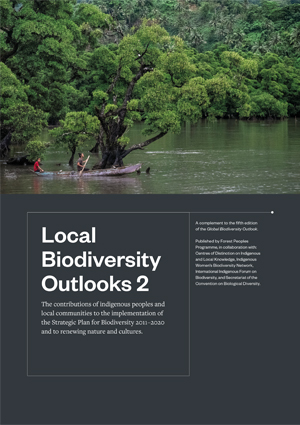
Local Biodiversity Outlooks 2
The contributions of indigenous peoples andThe contributions of indigenous peoples andlocal communities to the implementation ofthe Strategic Plan for Biodiversity 2011–2020and to renewing nature and cultures.
A complement to the fifth editionA complement to the fifth editionof the Global Biodiversity Outlook.Published by Forest PeoplesProgramme, in collaboration with:Centres of Distinction on Indigenousand Local Knowledge, IndigenousWomen’s Biodiversity Network,International Indigenous Forum onBiodiversity, and Secretariat of the Convention on Biological Diversity.

